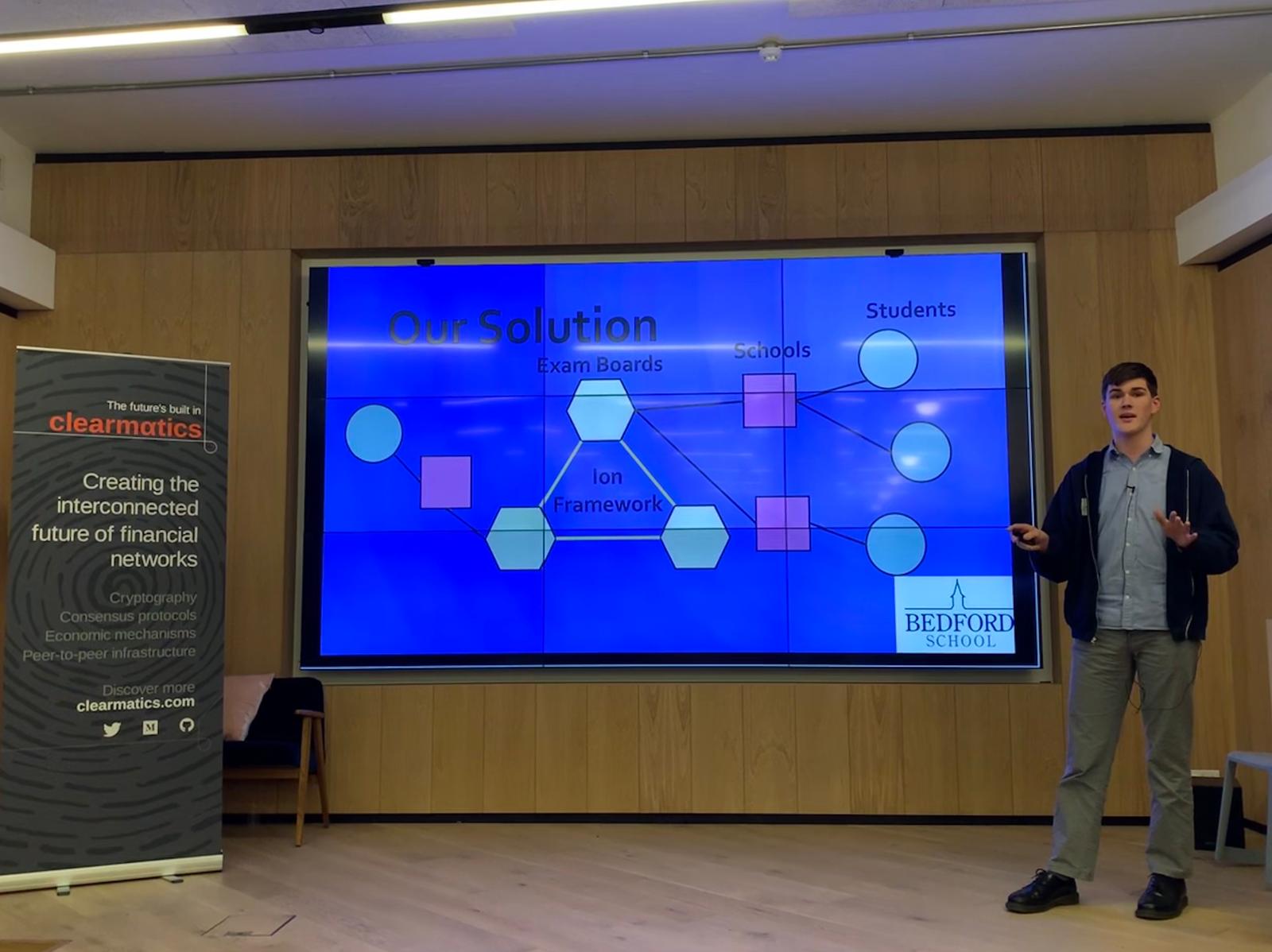Which Blockchain Challenge is Skale Solving?

Skale is helping to address the scalability challenge in blockchain technology. Skale is achieving this through a decentralized and configurable blockchain infrastructure that enables developers to build and deploy decentralized applications (dapps) with high throughput, low fees, and low latency.
This infrastructure is designed to enhance the performance and scalability of blockchain networks, making it possible to handle millions of transactions per second without compromising on security, decentralization, or accessibility. In this article, we will delve deeper into skale’s approach to solving one of the most significant challenges in the blockchain industry.
We will look at the key features and benefits of skale’s infrastructure, as well as how it is different from other scaling solutions. We will also explore the potential use cases for skale in different industries and applications.

Credit: www.coindesk.com
Scalability
Explanation Of Scalability In Blockchain
Blockchain technology has achieved significant milestones in recent years, but it has faced a major obstacle: scalability. Blockchain scalability refers to the capacity of a blockchain system to sustain and process an increasing number of transactions over time. In simple terms, scalability means enhancing transaction processing speed for increased user participation.
It is crucial for blockchain platforms to scale in a cost-effective and secure way to cope with growing demands.
Skale’S Role In Enhancing Scalability
Skale is a decentralized blockchain platform that aims to offer a solution to the scalability problem by democratizing access to the ethereum network. It aims to provide a new infrastructure with modern and efficient software greatly expanding the current blockchain capacity.
The key vision of skale is to enable developers to create their own blockchain networks and decentralized applications that are infinitely scalable and secure. Skale uniquely addresses scalability without sacrificing security or decentralization.
How Skale Achieves Scalability
Skale uses a unique scaling methodology that allows for the creation of fully decentralized, customizable sidechains that can communicate with each other. Skale’s elastic sidechains solution enables developers to create custom chains for their specific needs. The elastic sidechains are compatible with the ethereum network and allow users to enjoy faster transaction times, lower gas costs, and provide limitless scalability.
Skale has a few features that achieve scalability, including:
- Proof-of-stake (pos): Skale uses pos consensus, which reduces energy consumption and rewards validators based on their stake. Pos also enhances security and decentralization of skale’s network.
- State channel capabilities: Skale supports state channels, which enable frequent and high-speed transactions, without involving the main blockchain network. This feature allows skale to operate at higher speeds than other existing blockchain platforms.
- Containerization: Skale uses containerization technology to isolate applications in an operating system environment. This separation ensures that each app has its own set of computing resources that are efficiently utilized, resulting in faster processing speeds.
All these features work together to ensure that skale achieves exceptional scalability, providing a cost-effective solution to developers, and helping to reduce the barriers of entry to the blockchain world.
Skale’s elastic sidechains technology simplifies blockchain scalability by creating a decentralized, secure, and efficient ethereum network infrastructure. With skale, developers can enjoy infinite scalability while also maintaining security and decentralization.
Decentralization
Decentralization In Blockchain
Blockchain technology is highly regarded for its decentralized nature. But, what does decentralization in blockchain mean? Decentralization refers to a state where power and authority are distributed among a network’s nodes rather than held by a single entity, as is the case in traditional systems.
In a decentralized blockchain, the information is stored in multiple nodes (or computers), making the system more secure.
Issues Faced With Decentralization
Decentralization, however, comes with its own set of challenges. With more nodes in a network, there are more chances for errors and discrepancies to occur. Blockchain technology often faces the following decentralization challenges:
- High transaction speed and throughput
- Limited storage capacity
- High scalability issues
- Cross-chain communication issues
These blockchain challenges make it difficult to adopt blockchain technology at an enterprise level, as businesses require reliability, high performance, and an easy-to-use platform.
How Skale Overcomes Decentralization Challenges
Skale provides a solution to decentralization challenges by providing a platform that is easy to use, customizable, and scalable. Skale achieves this through the following:
- Optimized consensus protocols: This ensures that the network is secure and fast, providing uptime for the platform.
- Elastic sidechains: Skale provides elastic sidechains, which means that it can scale horizontally, thus allowing quick transaction speeds and more storage capacity to the platform.
- Interoperability: Skale allows cross-chain communication between different systems. Its sidechains can interact with each other as it understands the logic of different blockchain systems.
- Customizable smart contracts: Skale has customizable smart contracts capabilities, which means that businesses can customize the platform according to their specific business requirements.
Decentralized blockchain networks offer enhanced security and reliability, but it comes with a set of challenges. Skale platform provides a solution to these challenges, providing an easy to use and scalable platform for businesses to adopt blockchain technology.
Security
Importance Of Security In Blockchain
Ensuring the security of blockchain networks is crucial for building trust among users and maintaining the integrity of the system. Breaches can lead to the loss of digital assets and sensitive data, which can have severe consequences for individuals and businesses.
Therefore, it’s essential to have robust security measures in place to protect against potential threats.
Security Challenges Faced In Blockchain
Blockchain technology faces a range of security challenges. Here are some of the most common:
- 51% attacks: When a single entity controls over half of the blockchain network’s computing power, they can control the consensus and potentially alter transaction history.
- Malware and hacking: Blockchain wallets and exchanges can become vulnerable to hacking and malware attacks, leading to the loss of digital assets.
- Smart contract bugs: Smart contracts are self-executing contracts that operate on blockchain, and if there are any errors in the code or bugs, it can result in smart contract failures.
- Weak encryption: Blockchain encryption algorithms must be strong enough to ensure that transactions and data are secure from cybersecurity threats.
Skale’S Security Measures
Skale aims to tackle these security challenges by implementing the following measures:
- Multi-layered security protocols: Skale has a multi-layered approach to protect against both network-level and application-level security threats.
- Node monitoring and management: Skale monitors and manages nodes continuously to ensure they’re secure against potential threats.
- Smart contract audits: Skale performs smart contract audits to detect any potential bugs or errors in the code and fix them before launching.
- Encryption algorithms: Skale uses industry-standard encryption algorithms to secure data and transactions on the blockchain network.
Overall, skale is taking a proactive approach to ensure that its blockchain network is secure, providing users with peace of mind that their data and digital assets are safe from potential threats.
Interoperability
Blockchain technology presents significant challenges that must be addressed to enhance its efficiency and effectiveness. One of the main obstacles is interoperability, which refers to the seamless integration and interaction of different blockchain platforms. Various solutions have been devised to address this issue, and skale is one of the platforms with an innovative approach to interoperability.
Interoperability Challenges In Blockchain
- Incompatibility of different blockchain protocols
- Difficulty in transferring assets across different blockchain platforms
- High cost of running different blockchain networks
- Lack of a standardized system to ensure seamless interaction of blockchain platforms
Skale’S Approach To Interoperability
- Skale utilizes a virtualization model, which enables the creation of multiple “elastic” side chains that interact with different blockchain networks.
- The platform uses a standardized message format to enable seamless communication between different networks and side chains.
- It employs a high-performance consensus algorithm that allows for faster transaction processing, thus facilitating interoperability.
- The platform offers built-in privacy features that enable secure and private interactions between different blockchain platforms.
Benefits Of Skale’S Interoperability Approach
- Skale enables faster and more cost-effective integration of different blockchain networks, thus enhancing the efficiency of the overall blockchain ecosystem.
- Its virtualization model allows for the creation of flexible and customized side chains that cater to specific use cases and industries.
- The standardized message format ensures seamless communication between different networks, thus enabling the smooth transfer of assets and information.
- Skale’s privacy features enhance the security and protection of user data, thus ensuring trust and confidence in the overall blockchain system.
Skale presents an innovative solution to the challenge of interoperability in the blockchain ecosystem. Its virtualization model, standardized message format, and privacy features enable seamless integration and interaction of different blockchain networks, thus enhancing efficiency and effectiveness.
Partnerships And Integrations
Skale’S Partnerships And Integrations
Skale is a blockchain network that aims to provide an infrastructure that can support decentralized applications (dapps) by offering security, speed, and scalability. One of the ways the skale network is achieving this goal is through partnerships and integrations with other blockchain networks.
Benefits Of Partnerships And Integrations
Partnerships and integrations are essential because they help to expand the skale network’s functionalities, while also lowering the cost of dapp deployment. Below are some benefits highlighted:
- Increased scalability: Partnership with other blockchain networks can create a bridge between different blockchains, and dapps can benefit from the scalability of the skale network.
- Improved usability: Various blockchain networks have unique features, and when combined with skale’s functionalities, it creates an opportunity for an all-around solution for dapps.
- Lower deployment cost: Integrating with other blockchain networks allows skale network users to access more functionality and features without incurring extra costs.
How Partnerships And Integrations Help In Solving Blockchain Challenges
Partnerships and integrations can contribute significantly to solving various blockchain challenges. Some of the ways include:
- Interoperability: Collaboration with other blockchain networks enables the skale network environment to offer interoperability with different networks, making it easier for developers to integrate multiple blockchains.
- Increased functionality: Integrating multiple blockchains with skale network creates an opportunity for expansive features and functionalities that would have been costly when deploying several blockchain networks, leading to a more secure and flexible network.
- Reduced latency: When other blockchain networks integrate with skale network, they can leverage the network’s high-speed data processing, resulting in lower latency.
Through partnerships and integrations, not only is skale strengthening its own network, but it is also creating a symbiotic relationship with other blockchain networks that will further the development of blockchain technology. This will lead to a more robust blockchain network that can overcome scalability challenges while providing new use cases for dapps.
Frequently Asked Questions Of Which Blockchain Challenge Is Skale Helping
What Is Skale?
Skale is an ethereum-compatible network that gives developers the ability to build decentralized applications with high speeds and low costs.
What Blockchain Challenge Is Skale Helping To Solve?
Skale helps solve the challenge of scalability in blockchain technology, allowing for decentralized applications to run at high speeds and low costs.
How Does Skale Achieve Scalability?
Skale achieves scalability through the use of decentralized virtual chains, which are able to process transactions and run smart contracts at a much faster rate than on ethereum’s main chain.
What Benefits Does Skale Offer Developers?
Skale offers developers the ability to build and deploy high-performance dapps on a flexible, customizable blockchain infrastructure. It also provides a developer portal and toolkits to streamline the building process.
How Does Skale’S Token Work?
Skale’s token is used to incentivize validators to provide resources to the network, and to unlock access to skale’s decentralized network and services. Validators are rewarded in skale tokens for providing resources.
Conclusion
Skale is a blockchain platform that aims to solve ethereum’s scalability problem, allowing decentralized applications to function more efficiently. The team at skale is passionate about blockchain technology and believes it has the power to transform industries. By helping to solve key blockchain scalability challenges, skale is positioned to support developers and companies in their efforts to create blockchain-based solutions that can be adopted by mainstream users.
With skale’s advanced architecture, developers can benefit from faster transaction processing times, lower costs, and greater ease of use. By enabling secure and scalable transaction processing, skale is helping to usher in a new era of blockchain adoption and innovation.
The skale team is clearly committed to driving the growth of the blockchain industry by addressing critical scalability issues, and the future looks bright for this promising platform.







